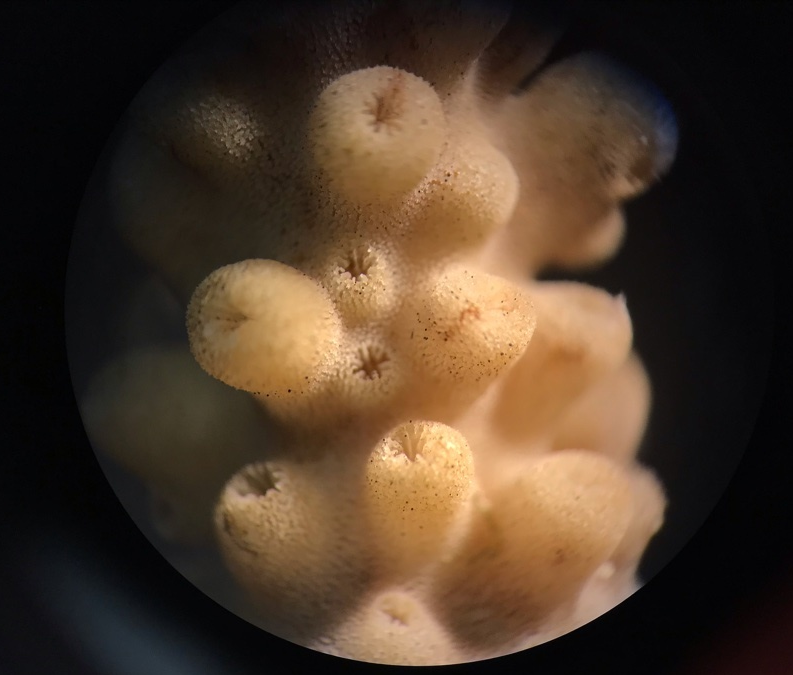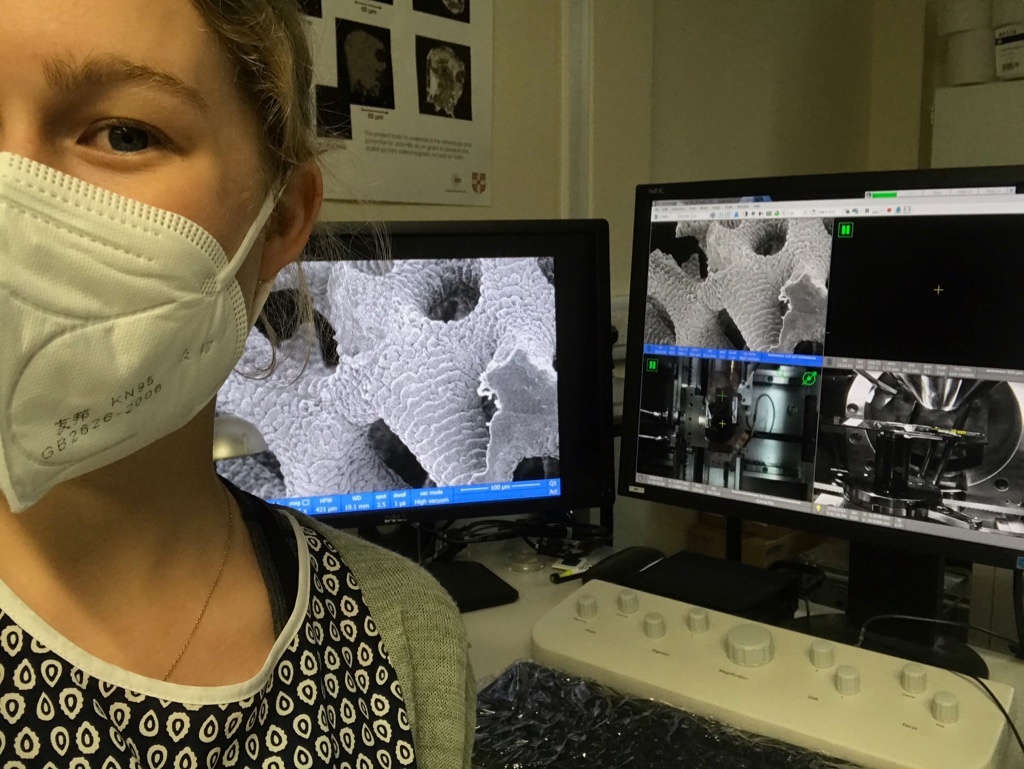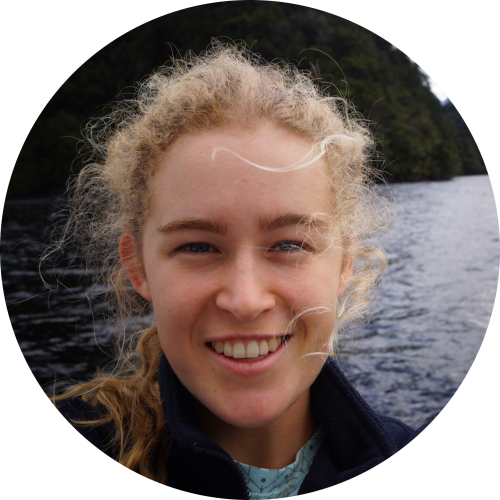Madison East

Corals are fascinating organisms that play a vital role in the health of marine ecosystems. One of their lesser-known talents is the ability to record environmental changes in their calcium-carbonate skeletons as they grow. By tracking changes in growth rate, trace element ratios and isotope concentrations, we can decipher aspects about the environment in which they lived, from sea level to temperature and salinity.
The focus of my PhD is using geochemical and modelling techniques to better understand how corals control and manipulate crystallization, and what mechanisms drive ion transport to the site of calcification. I also aim to untangle the effects of carbon chemistry (pH, dissolved inorganic carbon and saturation state) on geochemical proxies. I hope to contribute to improving coral-derived environmental proxies of the past, and better predicting how corals will fare in the future.
On a typical day in the lab you will find me cutting up corals skeletons with tiny power tools, cleaning them until they sparkle, and then zapping them with a laser to reveal their secrets. In the coming months I also hope to add ‘keeping corals alive’ to this list of activities.

More from Madison East
Greetings from Green Island!
Dive, collect, sort, repeat.
A Community Coral Reef
A collaboration with the Sedgwick Museum for the Cambridge Festival


